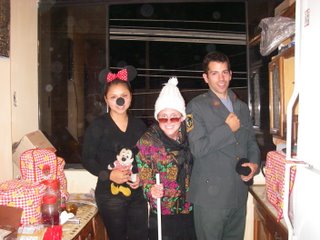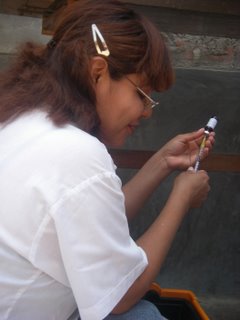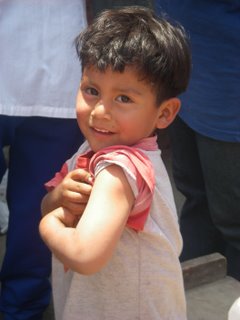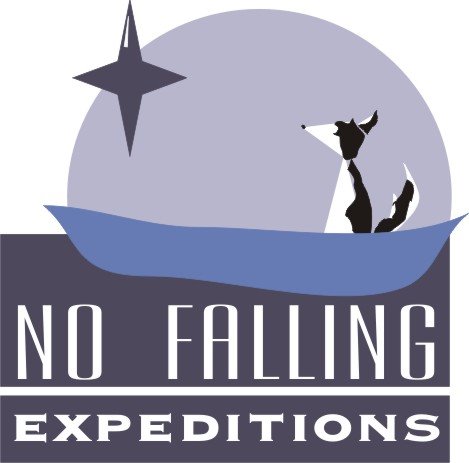Tuesday, October 31, 2006
Monday, October 30, 2006
10/30/06 (Day 48): Field based training in Piura & Lambayeque
As Libby head north to Ancash, I traveled via overnight bus further north to the departments of Piura and, later in the week, Lambayeque. We visited several volunteers at their sites and they shared their trials and tribulations. Traveling in small buses and three-wheeled moto-taxis, we spread out to small pueblos where these volunteers work day-to-day. We learned how to: raise bees, organize a micro-enterprise of women weavers, create a trash collection program, and build improved adobe stoves.
One paticularly moving experience was our visit to the tropical dry forest. As one of the most threatened ecosystems worldwide, I was keen to see what activities Peace Corps volunteers were doing to stop logging. We stayed for several days with families in the buffer zone of a protected forest. These people subsist off the wood (to cook) within the forest. Illegal logging for sale of charcoal and wood has been curbed through the association of volunteer park guards. Volunteers are helping to promote economic alternatives for these people in the long term. One project seems to be having success. Families can get a loan to build improved adobe stoves that - among other benefits - decreased the wood consumption (limbs of trees not trunks). The loan is four female ducks and one male. No kidding. After two years of breeding ducks, these families can pay back their stove costs and perhaps also a spacious latrine or sheep or cuyes (guinea pigs) that are also part of the program. By diversifying their economic activities, the hope is that families will be able to resist cutting wood when tourism is scarce or when El Niño destroys all of their crops. It was quite inspiring visiting homes with these improvements. The new stoves have a chimney and, therefore, the smoke does not blacken the pots, the straw ceiling or the women's eyes and lungs. These small projects change lives and preserve the adjacent natural heritage.
Although the forest has been heavily logged and devastated, we saw some incredible things including a thousand year old mesquite (algarobbo) tree, archaelogical sites of the Sipan cultures which had large adobe pyramid burial tombs, and some great birds. The best bird was undoubtedly the endemic and quite endangered (Park officials haven't been able to find a nest) Peruvian Plantcutter, a bizarre bird that strips leaves for food.
We have one more week of training before finding out our site placements. We will then actually visit the sites the following week. Hope all is well in your lives. Please write. We love you and love hearing from you!
Benjamin
One paticularly moving experience was our visit to the tropical dry forest. As one of the most threatened ecosystems worldwide, I was keen to see what activities Peace Corps volunteers were doing to stop logging. We stayed for several days with families in the buffer zone of a protected forest. These people subsist off the wood (to cook) within the forest. Illegal logging for sale of charcoal and wood has been curbed through the association of volunteer park guards. Volunteers are helping to promote economic alternatives for these people in the long term. One project seems to be having success. Families can get a loan to build improved adobe stoves that - among other benefits - decreased the wood consumption (limbs of trees not trunks). The loan is four female ducks and one male. No kidding. After two years of breeding ducks, these families can pay back their stove costs and perhaps also a spacious latrine or sheep or cuyes (guinea pigs) that are also part of the program. By diversifying their economic activities, the hope is that families will be able to resist cutting wood when tourism is scarce or when El Niño destroys all of their crops. It was quite inspiring visiting homes with these improvements. The new stoves have a chimney and, therefore, the smoke does not blacken the pots, the straw ceiling or the women's eyes and lungs. These small projects change lives and preserve the adjacent natural heritage.
Although the forest has been heavily logged and devastated, we saw some incredible things including a thousand year old mesquite (algarobbo) tree, archaelogical sites of the Sipan cultures which had large adobe pyramid burial tombs, and some great birds. The best bird was undoubtedly the endemic and quite endangered (Park officials haven't been able to find a nest) Peruvian Plantcutter, a bizarre bird that strips leaves for food.
We have one more week of training before finding out our site placements. We will then actually visit the sites the following week. Hope all is well in your lives. Please write. We love you and love hearing from you!
Benjamin
10/30/06 (Day 48): Field based training in Ancash
Here are a few photos from my journey to the high andes of Peru... the Callejon de Huaylas, the Cordillera Blanca and Negra, the department of Ancash. We were just 7 hours northeast of Lima, but truly entered into a different world. Five of us trainees traveled with our Community Health Director, Emilia, for the past week. From Sunday the 22nd until early yesterday morning, we visited 6 different Ancash sites and got the chance to ask some questions about what it's like to actually be a volunteer in Peru. Patience, flexibility & humor were their major bits of advice... at this we were not surprised.
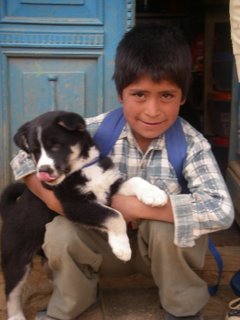 Here's thinking of our dear Maipo and remembering when she was just a puppy back in Chile. We met this cute little puppy, his brother and mother at a Quechua speaking site where the volunteer was known as Don Martin de Perros. Don't worry...we're not going to get another dog :)
Here's thinking of our dear Maipo and remembering when she was just a puppy back in Chile. We met this cute little puppy, his brother and mother at a Quechua speaking site where the volunteer was known as Don Martin de Perros. Don't worry...we're not going to get another dog :)
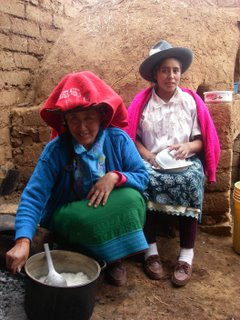 Part of our experience included eating the food of the communities in which we were visiting. Here a group of women cooked us rice, peas, carrots, and brocolli at the community soup kitchen (comedor popular). It was delicious. I was sick for the next 4 days.
Part of our experience included eating the food of the communities in which we were visiting. Here a group of women cooked us rice, peas, carrots, and brocolli at the community soup kitchen (comedor popular). It was delicious. I was sick for the next 4 days.
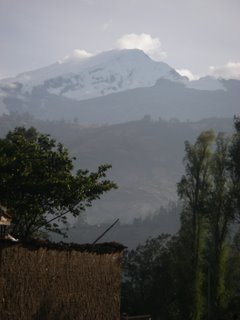 The beautiful cordillera blanca guided us on our way...when it wasn't raining. The rainy season is expected to start now and go for the next 3-4 months.
The beautiful cordillera blanca guided us on our way...when it wasn't raining. The rainy season is expected to start now and go for the next 3-4 months.
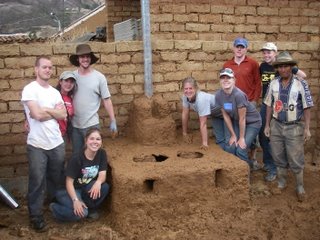 This is the improved stove that we built!
This is the improved stove that we built!

 Here's thinking of our dear Maipo and remembering when she was just a puppy back in Chile. We met this cute little puppy, his brother and mother at a Quechua speaking site where the volunteer was known as Don Martin de Perros. Don't worry...we're not going to get another dog :)
Here's thinking of our dear Maipo and remembering when she was just a puppy back in Chile. We met this cute little puppy, his brother and mother at a Quechua speaking site where the volunteer was known as Don Martin de Perros. Don't worry...we're not going to get another dog :) Part of our experience included eating the food of the communities in which we were visiting. Here a group of women cooked us rice, peas, carrots, and brocolli at the community soup kitchen (comedor popular). It was delicious. I was sick for the next 4 days.
Part of our experience included eating the food of the communities in which we were visiting. Here a group of women cooked us rice, peas, carrots, and brocolli at the community soup kitchen (comedor popular). It was delicious. I was sick for the next 4 days. The beautiful cordillera blanca guided us on our way...when it wasn't raining. The rainy season is expected to start now and go for the next 3-4 months.
The beautiful cordillera blanca guided us on our way...when it wasn't raining. The rainy season is expected to start now and go for the next 3-4 months. This is the improved stove that we built!
This is the improved stove that we built!
Friday, October 20, 2006
10/20/06 (Day 38): The infamous 'combi'
You just stand anywhere on the street and look for a guy hanging out the door calling out the names of streets or neighborhoods. They stop for you, you pile in, you fly down the road and pay the equivalent of around 30 cents around town...and then you get off and walk the dusty streets to your destination. This is... the combi.




Wednesday, October 11, 2006
10/11/06 (Day 29): Dia de Diversidad "Libby"
They told us to explain ourselves according to the groups to which we belonged...
I am a daughter, a sister, an aunt, a grand-daughter, daughter-in-law, host daughter, a wife.
I am a woman.
I am a friend.
I am a Minnesotan.
I am a Wheaton Lyon and a UMD Terp.
I am a swimmer, a cross-country skier, a paddler, a mountain climber.
I am a graduate of public policy, anthropology, and Latin American Studies higher education programs.
I am white, heterosexual, American.
I am an earthling, a human being.
I am a Peace Corps Volunteer.
I am a world traveler.
I am a home owner. I am an absentee landlord.
I am a dreamer, a smiler, a hugger. A lover of life.
I am a daughter, a sister, an aunt, a grand-daughter, daughter-in-law, host daughter, a wife.
I am a woman.
I am a friend.
I am a Minnesotan.
I am a Wheaton Lyon and a UMD Terp.
I am a swimmer, a cross-country skier, a paddler, a mountain climber.
I am a graduate of public policy, anthropology, and Latin American Studies higher education programs.
I am white, heterosexual, American.
I am an earthling, a human being.
I am a Peace Corps Volunteer.
I am a world traveler.
I am a home owner. I am an absentee landlord.
I am a dreamer, a smiler, a hugger. A lover of life.
Tuesday, October 10, 2006
10/10/06 (Day 28): The Ministry of Health - A glimpse into Libby's training
"It was a hot sunny morning. We arrived at 8:20am and met up with Ann who wanted to see how we were working, what we were doing, etc. She's a fourth year Peace Corps Volunteer who served her first 3 years in the Dominican Republic and then transfered for a fourth year in Peru. We did some brainstorming with her to figure out our Community Contact Experience (one of our homework assignments as trainees) because none of us feel like we have a defined community contact. The main reasons: (1) There are only 6 main people who work at the health post. Two tecnicians, a pharmacist, an obstitrician, a nurse and a doctor who is always with a patient in a closed room. And there are two Peruvian volunteers who are helping with the Rubella vaccine campaign. But during the morning the place is packed iwth patients and staff, including us, running around like crazy. (2) Time frame - the morning is busy, the close promptly at 2pm and there is no time for 'personal contact time.' (3) Vaccine campaign is a crazy time for the health post... Between October 1st and November 5th they have to vaccinate 200 people per day in order to meet their goals and this is where their focus is. (4) It's far away from our Peace Corps training center, so the logistics of meeting and giving presentations are tough.
Anyways, we talked with Maria the HR woman about our project (a handwashing campaign at a little preschool way up at the top of the mountain) and she talked to the woman in charge of vaccinating that day and agreed to aim their day's energy at that particular neighborhood, known as the "quinta zona." She would help us to make a community contact of the school's director or president so that we could arrange the date and time for our handwashing presentation.
We had a bit of a communication mix up with the vaccinator who had told us that she's meet us up the street on the corner where we could make copies of our community health diagnostic survey that we wanted to leave with the doctor for his review. We had all of the vaccines and couldn't find our health post contact... So we ate a delicious local fruit called the Chirimoya.
So... we all hopped into a collectivo and paid 1 sol (~30 cents) for him to bring us up to the top of the mountain where we hoped to find the vaccinator and the kindergarten. We didn't find the vaccinator, and when we asked for directions to the preschool we were told by a community member that they students weren't in school today because they were resting after a yesterday's big field trip. Just our luck. But the same man told us that he knew where the preschool's president lived, Maria, and she came to meet us at the preschool and invite us to come back on Friday to finalize our plan.
Later that same day, I also had the opportunity to meet the president of one of the local 'comedores populares' or soup kitchens. Rosio asked me if I could do a series of talks with the women/mothers who frequented the kitchen on such topics as (1) self esteem, (2) stress, (3) communication tools, etc. I'll start next week. This will help to fulfill the requirements for my 'mini-project' for my spanish language and culture class."
Anyways, we talked with Maria the HR woman about our project (a handwashing campaign at a little preschool way up at the top of the mountain) and she talked to the woman in charge of vaccinating that day and agreed to aim their day's energy at that particular neighborhood, known as the "quinta zona." She would help us to make a community contact of the school's director or president so that we could arrange the date and time for our handwashing presentation.
We had a bit of a communication mix up with the vaccinator who had told us that she's meet us up the street on the corner where we could make copies of our community health diagnostic survey that we wanted to leave with the doctor for his review. We had all of the vaccines and couldn't find our health post contact... So we ate a delicious local fruit called the Chirimoya.
So... we all hopped into a collectivo and paid 1 sol (~30 cents) for him to bring us up to the top of the mountain where we hoped to find the vaccinator and the kindergarten. We didn't find the vaccinator, and when we asked for directions to the preschool we were told by a community member that they students weren't in school today because they were resting after a yesterday's big field trip. Just our luck. But the same man told us that he knew where the preschool's president lived, Maria, and she came to meet us at the preschool and invite us to come back on Friday to finalize our plan.
Later that same day, I also had the opportunity to meet the president of one of the local 'comedores populares' or soup kitchens. Rosio asked me if I could do a series of talks with the women/mothers who frequented the kitchen on such topics as (1) self esteem, (2) stress, (3) communication tools, etc. I'll start next week. This will help to fulfill the requirements for my 'mini-project' for my spanish language and culture class."
Monday, October 09, 2006
10/09/06 (Day 27) Vaccines and vicuñas
This morning we received Typhoid vaccinations. Our upper arms have been stuck for Rabies, Hepatitis A and B already. Vaccinations are the word on the street around Santa Eulalia actually. A guy from Lima was bitten by a mosquito and died from Bartonelosis (sp?), la verruga peruana. Until yesterday all the city folks that normally visit Santa Eulalia on the weekends have been too afraid to come. There has been daily media coverage, including interviews of our host aunt and a protest in Lima that our abuela attended (she was on TV, too). This weekend the town had a big celebration in the main plaza where they gave away 2,000 meals of pachamanca. This is a typical dish of potatoes, sweet potatoes, meat, carrots and tamales cooked in underground ovens. They heat rocks and bury the food for awhile. We aren´t positive that they gave away all 2´000 promised dishes, but there were quite a few people in attendance. Libby was interviewed so hopefully our string of television appearances will continue. She assured everyone that the mosquitoes haven´t gotten her and that all the limeños should come back to Santa Eulalia. In fact, the disease is endemic to much of Peru and is less abundant in recent years due to increased awareness. Similar to media attention in the U.S., the story of the gentleman´s death blew everything out of proportion.
We also attended an interesting deconization of two Cameroonian Catholics. There were a bunch of missionaries in attendance from all over the globe. As the Cameroonian music accompanied the service, I reflected on just how global this world has become. I am off to my hour of Spanish class to work on the imperfect subjunctive and Peruvian jerga (slang).
ciao for now, benjacho del sur
We also attended an interesting deconization of two Cameroonian Catholics. There were a bunch of missionaries in attendance from all over the globe. As the Cameroonian music accompanied the service, I reflected on just how global this world has become. I am off to my hour of Spanish class to work on the imperfect subjunctive and Peruvian jerga (slang).
ciao for now, benjacho del sur
Monday, October 02, 2006
10/02/06 (Day 20): Our local phone number and address!
Hey all! Just wanted to let you know that we have a phone at our host families house so that you can call us if you want to!
511 3613567 -- 511 is the country code for Peru. There might be a city code for Sta. Eulalia that you can find online...
Also, you can write us letters to the following address! We found out that it's really expensive to send snail mail from Peru, so we will try to keep everybody as updated as possible. We also have learned that you can indeed send us letters and padded envelope size packages as long as they are less than 1 pound (for instance to send books, indian spices, or photos of you!)
Libby and Benjamin Skolnik (PCTs)
Cuerpo de Paz
Via Laceta 132, Surco
Lima, PERU
511 3613567 -- 511 is the country code for Peru. There might be a city code for Sta. Eulalia that you can find online...
Also, you can write us letters to the following address! We found out that it's really expensive to send snail mail from Peru, so we will try to keep everybody as updated as possible. We also have learned that you can indeed send us letters and padded envelope size packages as long as they are less than 1 pound (for instance to send books, indian spices, or photos of you!)
Libby and Benjamin Skolnik (PCTs)
Cuerpo de Paz
Via Laceta 132, Surco
Lima, PERU
10/01/02 (Day 19): Diarrhea
" 'It is a fact that one traveling from a 'low risk' area like the United States to a 'high risk' area like Peru will get sick.' Or so Jorge told us one week ago, and only moments before I feel deep into a bout of nausea and inability to eat. Benj has had sinusitis and is finally feeling up to playing soccer with the others again. We are quite the pair. I'm starting to be able to eat again finally this morning. I've convinced my host mom that maybe it was the meat, so I'm pretty much guaranteed to get meat free meals for here on out."
